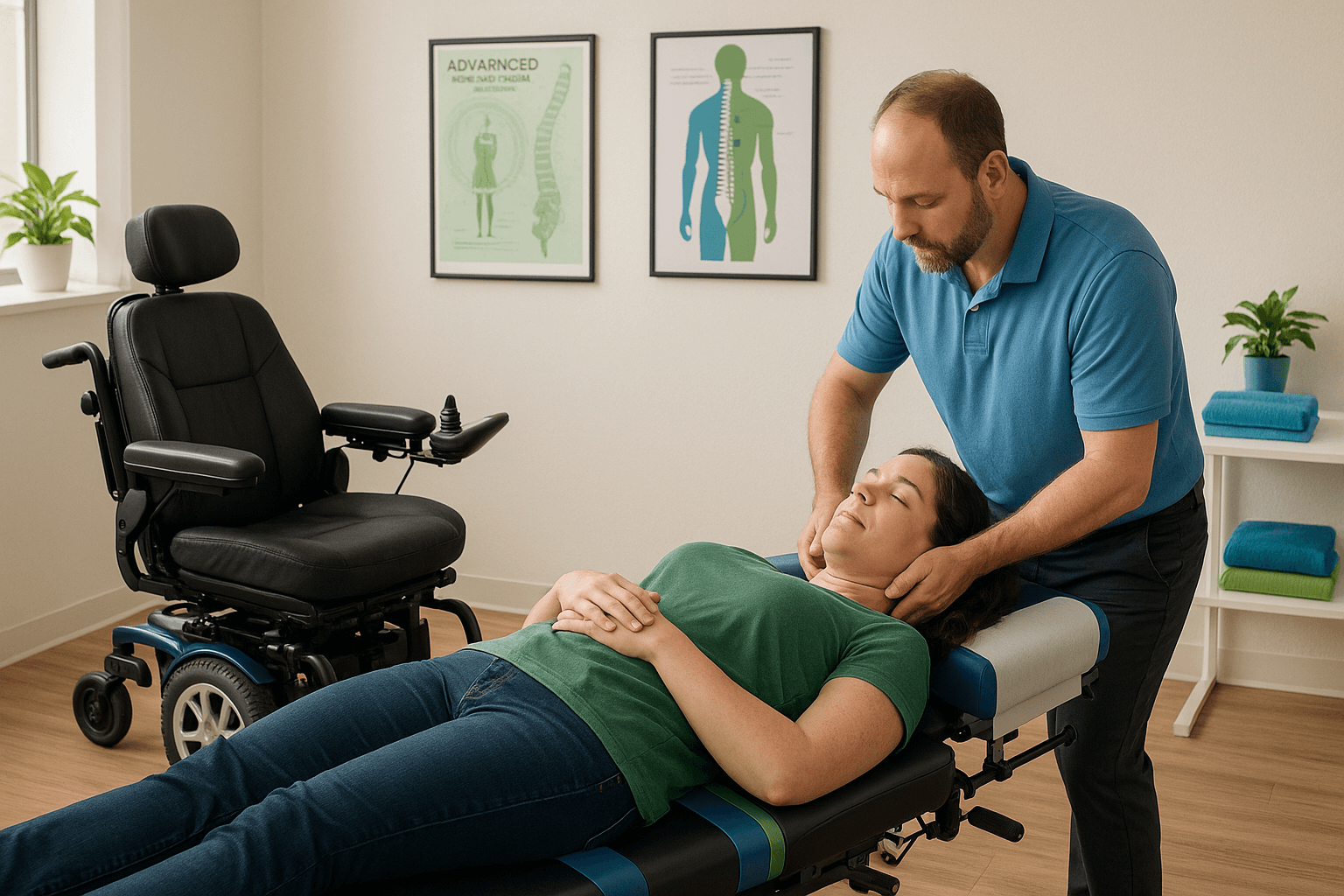The gut-brain connection has gotten a lot of buzz recently—and for good reason. But what most people don’t realize is that your spinal alignment plays a central role in that communication highway.
At Upright Posture, we go beyond symptom management and into the deeper mechanics of body function. And yes, that includes how the spine affects your gut, your brain, and your overall well-being. Let’s break down the real connection between the gut-brain axis and spinal alignment, and why correcting your posture could be the missing piece to better digestion, mood, and focus.
Jump to:
TLDR – Quick Guide
- Keyword Focus: gut-brain axis and spinal alignment
- Main Idea: Misalignments in the spine interfere with neural signals between your brain and gut—wreaking havoc on digestion, mental clarity, and stress response.
- Clinical Lens: Advanced BioStructural Correction™ (ABC) helps restore the physical pathways these signals travel through.
- Takeaway: If your gut’s off and your head’s foggy, check your spine—it might be the root of the problem.
Detailed Breakdown
What Is the Gut-Brain Axis?
The gut-brain axis is a communication network between your brain and your digestive system. It involves nerves, hormones, and immune signals that keep your mood, digestion, and immune response in sync.
The vagus nerve plays the starring role here. It travels from your brainstem down through your spine and into your digestive organs. Think of it like a two-way street sending traffic between your head and your gut all day long.
How Spinal Alignment Affects This Connection
When your spine is misaligned, especially in the neck and mid-back (cervical and thoracic regions), it can compress or distort the nerves that carry these vital signals. This impacts:
- Digestion: Gas, bloating, IBS, constipation
- Mood: Anxiety, depression, stress intolerance
- Cognition: Brain fog, poor focus, memory lapses
In short, a misaligned spine interrupts the flow—literally.
Advanced BioStructural Correction™: The Missing Link
Most treatments target symptoms—whether it’s medication for IBS or mindfulness for anxiety. But if the root cause is a compressed or twisted spinal structure, none of those solutions will stick.
At Upright Posture, we use Advanced BioStructural Correction™ (ABC) to restore spinal alignment. This removes physical interference from the nervous system, allowing the gut-brain axis to function as intended.
Patients often report improved digestion, clearer thinking, and lower anxiety levels—not as side effects, but as natural results of structural correction.
Real-World Evidence
It’s not just theory. Research suggests a strong tie between spinal health and gut function. A 2021 study in Frontiers in Neuroscience noted that vagal tone (which can be altered by spinal issues) plays a key role in gut motility and mental health.
Even in clinical practice, patients with long-term digestive or emotional issues often experience rapid improvements after ABC treatment, sometimes within weeks.
Key Takeaways
- The gut-brain axis depends on uninterrupted neural signaling—something that’s compromised by spinal misalignments.
- Spinal alignment directly influences autonomic nervous system function, which controls digestion and mood.
- Correcting the spine with Advanced BioStructural Correction™ has shown improvements in issues like IBS, brain fog, and anxiety.
- A slouched spine compresses nerves and organs, reducing efficiency in both brain communication and gut performance.
- Fix your structure, and everything from bowel movements to brain performance could level up.
FAQs
1. Can spinal misalignment really affect my digestion?
Yes. Misalignments can overstretch nerves that control your gut, leading to symptoms like bloating, constipation, or irritable bowel syndrom.
2. How does spinal correction improve mood or reduce anxiety?
By reducing interference in the vagus nerve and improving nervous system balance, patients often notice improvements in emotional regulation and stress response.
3. I’ve tried probiotics and diet changes—why aren’t they working?
If the issue is mechanical (i.e., nerve compression due to poor posture), no amount of gut-friendly food will fix the communication breakdown between your gut and brain.
4. Is there scientific support for this?
Yes. Multiple studies point to the importance of vagal tone and spinal integrity in regulating the gut-brain axis. Clinical outcomes also back this up when patients undergo structural corrections.
5. How do I know if my posture is the problem?
Look for signs like chronic slouching, forward head posture, or persistent digestive issues despite healthy habits. A consultation with an ABC-trained practitioner can assess your structural alignment.






